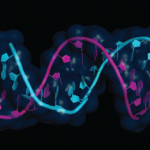John Hardin, MD, the AF’s chief scientific officer, says that AF-funded studies have received tremendous visibility and attention over the years. “About 90% or more of researchers we fund actually publish studies in a scientific journal,” he says. “Many of these articles appear in the most respected publications in the field.”
AF-funded studies, have led to the development of new therapeutic agents and discoveries such as the epidemiology of Lyme disease. “We have supported many projects that have facilitated bringing new discoveries to the marketplace and showing applications for patient care,” he says.
Leap Research Barriers
Dr. Hardin urges rheumatologists and other practitioners to get involved in research despite the challenges. “Basic science in this country is vigorous and strong, but we always need more funding,” he says. Additionally, there are bottlenecks slowing the process of translating scientific discoveries into treatments and products. “We need a more streamlined bureaucracy that ensures the translation of research into products and practice is done properly,” he says.
All rheumatologists can help arthritis research overcome one important barrier—engaging patients in studies. “They can help patients understand the benefits and value of research studies,” says Dr. Hardin. He adds that practitioners can help identify seniors and children—two important specialty populations—who might be appropriate for studies. “We need to protect these individuals, but we don’t want to exclude them from studies.”
Create Strong Researchers
From the beginning, a cornerstone of the AF’s research program has been to train and nurture talented researchers. “In the early ’50s, there was a limited number of specialists in musculoskeletal disease and research programs relating to arthritis were relatively weak,” explains Dr. Hardin.
Therefore, an early AF task was to “develop an army of investigators” to take on the challenges of arthritis research. The organization created an original program designed to fund the training of researchers, including rheumatologists and other clinical specialists.
Ultimately, “the Foundation trained the vast majority of people currently active in academic rheumatology and research,” he says. “Our core program was designed to develop arthritis investigators. On top of that is a layer of grants to help experienced investigators and move them into their role as independent scientists.”
Unlike National Institutes of Health (NIH) grants, which generally require a number of preliminary background studies supporting any research idea or proposal, AF’s research program accommodates studies that have only limited data to support their feasibility. “We often fund studies that are at earlier stages of the game. We generally anticipate that the work done under these grants will blossom into research endeavors that will acquire the support of NIH,” Dr. Hardin adds. In fact, he sees a seamless interface between the Foundation and NIH.
All rheumatologists can help arthritis research overcome one important barrier—engaging patients in studies.
Role for Rheumatologists
Rheumatologists—in all settings and with all levels of experience—are welcome to participate in AF research programs. “They are well positioned to participate in inquiries into arthritis research issues,” he says. “Patients are as important for clinical research as are scientists; and it is important for rheumatologists and other physicians to identify patients who may be good candidates for research studies.” Additionally, rheumatologists also can play a role by helping to raise money for research.

